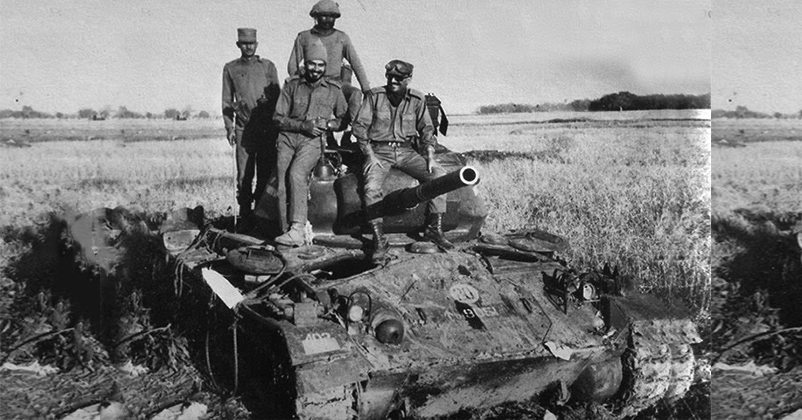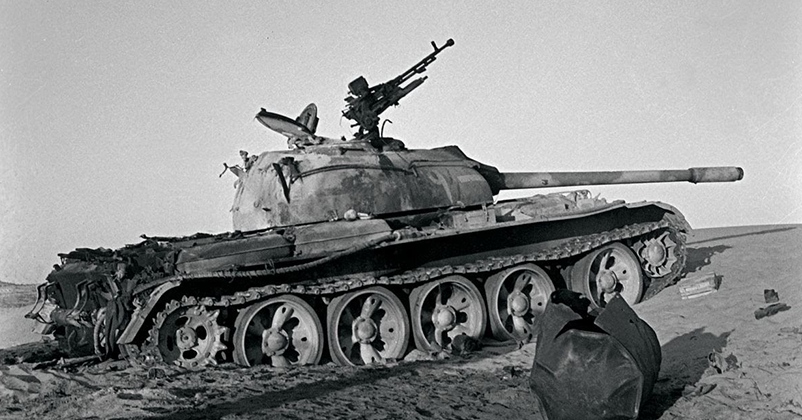Battle of Garibpur’s 52nd anniversary, marks India Pakistan’s first direct encounter in 1971 war
21 Nov 2023 09:29:07

November 21,2023, marks the 52th anniversary of the Battle of Garibpur, 1971, a fierce clash with Pakistan in the War of Independence for Bangladesh. It was fought 12 days before India officially joined the war against Pakistan. This was the first direct encounter between the two countries.
The battle started after an Indian army 14 Punjab battalion supported by PT-76 tanks from the 45 Cavalry and Mukti Bahini moved in to capture the areas around Garibpur inside the Pakistani territory, prompting a Pakistani counterattack. Armies of both nations were well-equipped with tanks and fighter jets at Garibpur near Khulna's Boyra.
Reports say, Indian army had destroyed 14 M24 Chaffee light tanks and three F-86 Sabres (fighter jet) along with capturing of two Pakistani air officials by Mukti Bahini (Bangladeshi Freedom Fighters). Mukti Bahini was instrumental in fighting a guerrilla war against the Pakistan army as a paramilitary force during the war of liberation in 1971.
Here, the Indian 14 Punjab Group, which consisted of a squadron of tanks from 45 Cavalry, took on two infantry battalions of Pakistan Army along with an Independent squadron of M-24 Chaffee tanks. The 14 Punjab group also had one platoon 102 Engineer Regiment and 87 Battery, 6 Field Regiment along with elements of 78 Medium Regiment as artillery support.
In this battle, Major Daljit Singh Narang, who was the Squadron Commander of the 45 Cavalry squadron, took on the Pakistani tanks head-on and ensured the destruction of two enemy tanks before he was hit while he was standing in the tank cupola. His squadron second in command, Capt Balram Mehta took over from him and ensured the destruction of the tanks of Pakistan Army. Major Narang got a well-deserved Mahavir Chakra posthumously.
Brigadier Balram Singh Mehta, the second-in-command of India's then 45th Cavalry C Squadron, believes that the Indian army could have advanced to Jessore Cantonment in East Pakistan following the victory in the battle of Garibpur. But the squadron commander Major Daljit Singh Narang, who was responsible to give instructions, had died during the combat. While Pakistan's army had been attacking Indian territory and Mukti Bahini Camps through tanks and warplanes.
Reportedly, two weeks before Indira Gandhi had declared war. The Indian army along with Bangladeshi freedom fighters had decided to carry out a counter operation via the Garibpur front, reported Bangladesh Live News. Brigadier Balram Singh Mehta told Bangla Tribune, "I was then the second-in-command of the 45th Cavalry Squadron. We had Russian PT-76 tanks in our fleet. Together with the 14th Punjab Battalion, on the night of 20th November, we crossed the Kabadak river and entered the border of Garibpur... after dawn on the 21st, the Pakistani tank fleet started fighting with our tanks. They had 14 American Chaffee tanks with them.
It was a tank versus tank battle in which 14 enemy tanks were destroyed by 14 Indian tanks with the loss of only two tanks.

A destroyed Pakistani tank
Major Daljit Singh Narang, the commander of our squadron, lost his life in the Pakistani shelling almost at the beginning of the war. As a result, the responsibility of conducting the war fell on me. Just then my tank started malfunctioning. Meanwhile, three Pakistani tanks surrounded us. Almost miraculously we managed to bring down all three tanks. When their gunner was coming out of a Pakistani tank, I stopped the gunner in my tank from firing at him. Later, when we took him a prisoner of war and gave him tea and biscuits, he was still giving thanks." It was a glorious victory because such an action across the border was happening for the first time.
This particular tank squadron had great impact on the Pakistani generals. It left them with no choice but to declare war by December 3, 1971. We had already crossed the border and were in contact with the enemy. War was declared on December 3 and we carried on for the next 25 days. I lead the tank troops and the division all the way to Khulna and accepted the surrender on 16 December. The Chief of Army Staff General Sam Manekshaw sent a congratulatory note and made sure that the unit got a large number of awards.
The Battle of Garibpur brought many well deserved gallantry awards to the Battalion. While Lt Col RK Singh was awarded the Maha Vir Chakra, the unit earned another MVC posthumously, two VrCs and two Sena Medals. The attached troops won one MVC, two VrCs and two Sena Medal. The three IAF Gnat pilots who shot down the Sabre jets were awarded a VrC each.
A war film named, Pippa, starring Ishan Khatter has been made on the book 'The Burning Chaffees' by Brigadier Mehta. The Burning Chaffees”, which gives the account of the Battle of Garibpur in Bangladesh theatre of 1971 war, has brought into focus the role of tanks in this war and to what extent they were effective in the battle.